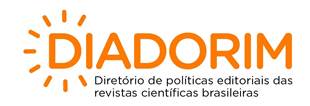The correlation between ADHD and migraine: the need for comprehensive management
Abstract
Introduction:
Attention Deficit with Hyperactivity Disorder (ADHD) and migraine are neurological conditions that significantly impact quality of life. ADHD is a neurodevelopmental disorder characterized by inattention and hyperactivity or impulsivity, while migraine is a primary headache disorder, marked by recurrent episodes of severe headache. Evidence suggests a potential comorbidity between ADHD and migraine, raising questions about pathophysiological mechanisms and risk factors.
Objectives:
This summary elucidates findings of an integrative review, evaluating research on the potential correlation between ADHD and migraine. It assesses whether ADHD increases the risk of migraine, explores potential pathophysiological mechanisms, risk factors and clinical practice implications.
Methods:
A comprehensive search of MEDLINE, LILACS and PubMed databases in June 2024, using the descriptors "Attention Deficit Disorder with Hyperactivity" AND "Migraine Disorders" yielded 96 articles, of which 23 met the inclusion criteria for analysis.
Results:
All analyzed studies indicate a significant association between ADHD, in which the diagnoses were based on DSM-5 criteria, and migraine, which evaluations were conducted clinically by physicians. One study found that ADHD nearly triples the risk of migraine, while another noted higher polygenic risk scores in individuals with both conditions. Severe ADHD correlates with poorer migraine outcomes, particularly in pediatric patients with refractory migraine. While identified risk factors for ADHD include male sex, prenatal tobacco exposure, frequent headaches, and poor academic performance, migraine is more prevalent in women with ADHD.
Even though six studies called for pathophysiological research, evidence suggests that ADHD and migraine share etiology through dopamine dysregulation. Authors propose that low dopamine environments cause hypersensitized dopamine receptors in migraines and increased presynaptic dopamine transporters in ADHD. This could explain ADHD symptoms in migraine sufferers and vice versa. Stimulant treatment for ADHD, noted to cause headaches, actually reduces headache prevalence by restoring the dopamine-norepinephrine balance. Multidisciplinary treatment is recommended by approximately 22% of studies, emphasizing the need for holistic care.
Conclusion:
The evidence confirms a relevant association between ADHD and migraine, advocating for multidisciplinary treatment strategies and further studies into shared pathophysiological mechanisms. The findings highlight the need for comprehensive management to improve outcomes for patients with comorbid ADHD and migraine.
Downloads
Downloads
Published
Issue
Section
License
Copyright (c) 2024 Letícia Pereira Arce, Ana Paula Ascari Meurer Correia, Cristiane Ribeiro , Erica Yuri Tsutumi, Gabriel dos Santos Oliveira, Henrique Passarini Pinheiro, Jaíne Frighetto, Kawan Souza Furio, Lorena Carvalho Plens, Valentina Miotto Gasparim (Author)

This work is licensed under a Creative Commons Attribution 4.0 International License.












